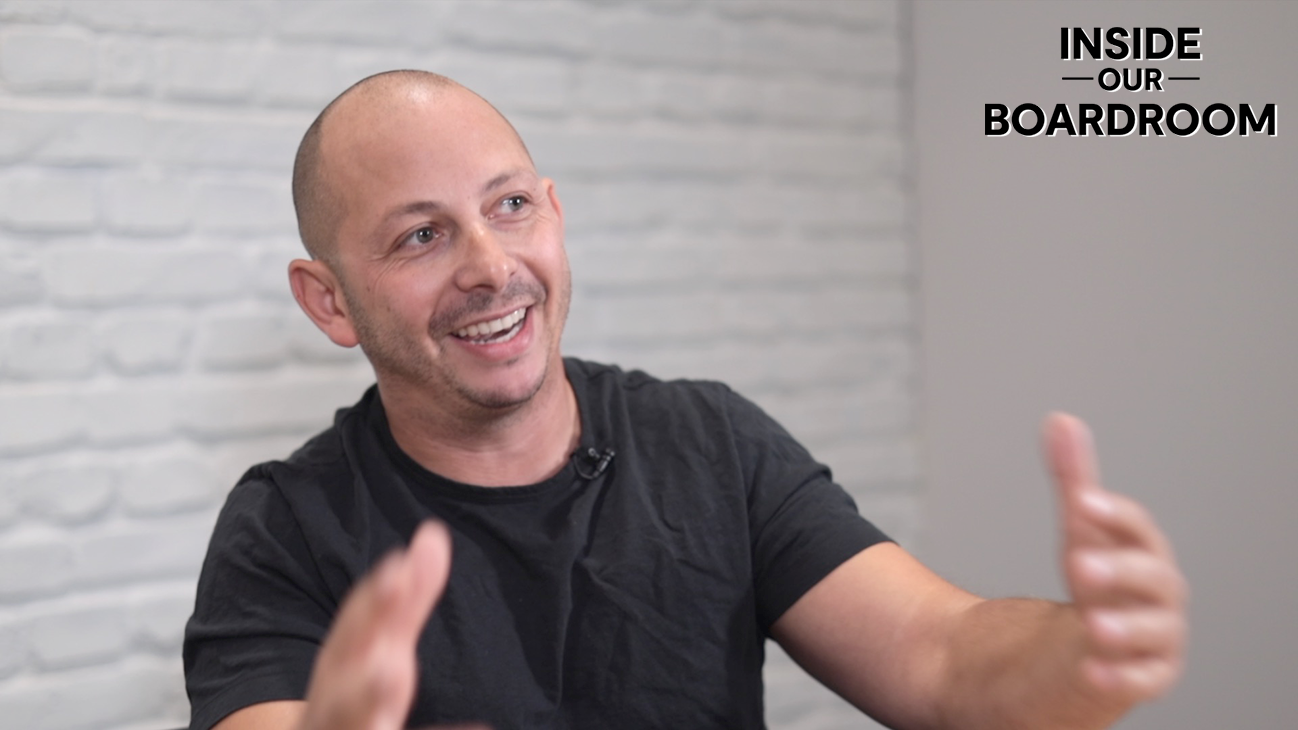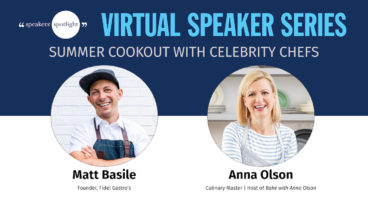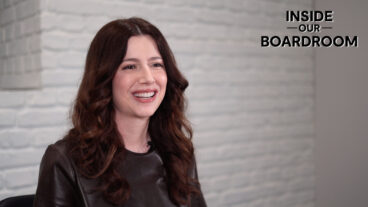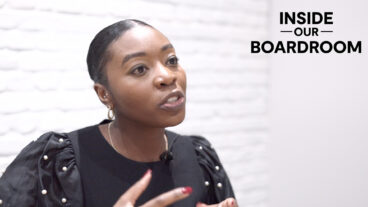Chef Matt Basile spent over a decade disrupting the food industry as the founder of Toronto’s most recognizable food truck brand, Fidel Gastro’s, and popular gastropub, Lisa Marie. In 2020, Matt made the leap from food service to redefining the art of cooking itself. He co-founded Alchemy Grills, where he’s now disrupting the barbecue and live-fire cooking landscape.
In an industry steeped in tradition, Matt is always striving to do things differently. We caught up with him “Inside Our Boardroom” to explore his entrepreneurial journey, how he fuels his passion for his career, and, of course, his advice on how to find the best restaurants.
Answers have been edited for length and clarity.
From Copywriter to Celebrity Chef
Speakers Spotlight: What challenged you to become a cutting-edge chef?
Matt Basile: I was actually motivated primarily by a desire to be an entrepreneur — I wanted to be my own boss. And from that I asked, what am I good at? What do I love to do? And food was always a big part of that.
I never sought out to be a chef or to work in the food industry. I’m Italian Canadian and it was just how I was raised. I worked in grocery stores and butcher shops. It was just something I was good at. And I loved doing it.
There are two schools of thought. Some people say to never follow your passion, and instead find something you can be good at and take the time to be great at. But I have a very different approach. I think to go from good to great, you need to love what you do. And for me, food is integral to that.
In just eight years, Matt went from a copywriter filled with big ideas and no motivation, to owning one of Canada’s most recognizable food truck brands; publishing two bestselling cookbooks; and owning and running his own restaurant. Matt shares insight into his entrepreneurial journey in his energetic keynote presentations and cooking demonstrations.
From Chef to Grillmaster
SpSp: What are the difficulties and payoffs of pivoting?
MB: I think at any point in a professional or entrepreneur’s journey, the need to adjust what you’re doing is either put on you or comes from inside you. I personally feel like you want to be in more control. You need to look ahead and say, where is my journey headed? How can my energy be spent in a different way to usher in a new chapter?
As a chef and an entrepreneur, but with a non-traditional background in advertising and self-taught in cooking, I’ve always looked at the creative aspect of how people can connect with food. That’s been my core. And I think if you remain true to your core, you’re naturally always trying to reinvent yourself, because as soon as something feels comfortable or complacent, then you know you’re probably overstaying your welcome.
SpSp: What have you learned from pivoting from food service to the grilling space?
MB: We were talking about pivoting, but timing also plays a huge role in changing your trajectory. I had been doing the food service industry, entrepreneur lifestyle for over a decade, and that, combined with the obstacles that COVID presented, was starting to wear me out. The joy, the passion that I used as my guiding light, was starting to dim.
At the same time, I was approached by two other entrepreneurs that wanted to start Alchemy Grills and the way I looked at it, was that I love this and I would do this even if it wasn’t for money. I would do this just for fun. So that made the process of transitioning a lot easier.
I’m more of a live fire chef than traditional barbecue anyways, but it also comes back to the creative side of things. I wanted to explore and showcase just how much can be cooked over a fire pit. I want to ensure that people are not intimidated by it, but have their eyes opened to all the different things they can do.
Lessons from the Commercial Kitchen
SpSp: What can a kitchen teach us about how an office should run?
MB: Kitchens are a great example of what a great working environment or a horrible working environment can look like, because they are so volatile — you have a lot of overlapping duties. You’re not just working in your silo, you are dependent on your team.
If you worked for me in the beginning of my career, I’ll probably have been the worst boss you’ve ever had. But if you worked for me in the later years, you’ll probably say I was one of the best bosses you ever had. You learn what works and what doesn’t, and you apply it on a minute-to-minute basis because you’re constantly in service. That’s the best part about the kitchen environment. If something isn’t working, you can learn from it and you can apply it almost immediately and see if it has a change or impact.
The team aspect of it and giving people respect and autonomy is key. And that goes for any company in any office — if we can be more efficient with our people, their talents, their time, their energy, you’ll have a better outcome.
A Chef’s Opinion: What Makes a Great Restaurant
SpSp: What do you look for in a good restaurant?
MB: As a chef, I look for a few things. First off, when you walk in, what’s that initial energy you’re getting from the space itself? Is it quiet? Is it stuffy? Does it feel like the staff are walking on eggshells? Or do they feel like they’re welcoming you into their home?
Secondly, service is key so that interaction with the front of house workers is so important. Those first two or three points of contact will either make you look at the food you’re about to receive a little more closely or get your guard down because you’re already enjoying yourself.
But at the end of the day, if the food isn’t good, you’re not coming back. As a chef, the food quality, consistency, and creativity all coming together, is really important.
So put that all together, and combine it with, hopefully, a price point that agrees — those are all key things I look for in a restaurant.
With infectious enthusiasm, Chef Matt Basile shares lessons he’s learned in the trenches as a founder, not only when it comes to creating a successful and sustainable business, but also how to heal from burnout, reignite that innovative spark, and keep that entrepreneurial spirit fueled.
Contact us to learn more about Matt and how to book him to speak or host a cooking demonstration at your next event.




